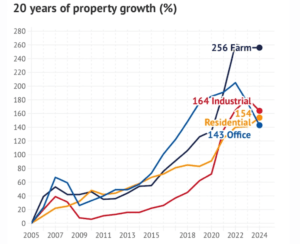In the world of money, getting a loan is not just from big banks or other big lenders anymore. More people in Australia now look at different ways to get money when the usual ways don’t work. A choice that is getting popular is private lending, used for business and investing.
But what is private lending, and how can it help you? Is it the step you need to reach your next money goal, or does it bring risks that are too big? Let’s look closely at this not-well-known but strong money choice.
Understanding Private Lending Simply
Private lending is a way to get money not from banks, but from people, companies, or groups. They use their own money and decide the loan terms, often caring a lot about asset safety and wanting money back soon.
In Australia, private lending does not follow the same rules as other loans, so it’s more commonly used for business than buying a home. This means more freedom in how to borrow, but also, you need to know the risks well.
Why is Private Lending Growing?
People pick private lending more and more because:
- Speed: It’s fast. Unlike banks, which take a long time, private lenders make quick choices, sometimes in a day.
- Flexibility: Private lenders don’t stick to strict rules. They can say yes to deals banks may say no to because of low credit scores, odd security, or not enough money history.
- Creative Financing: Private lenders can agree to deals that fit your unique needs, like funding a business or filling cash gaps.
Common Uses of Private Lending
If you wonder about using private lending for your money goals, think about these uses:
1. Bridging Finance – Good for property buyers. If selling one place and buying another, and the sale takes time, a private loan can cover the gap.
2. Business Growth – Helps new small businesses get money based on their plan or assets, even if they don’t meet usual loan needs like past profits.
3. Buying Assets – For people or funds wanting property, cars, or gear, loans can depend more on the asset’s worth than credit history.
4. Developing Property – Private lenders often help by funding building projects, with a clear payback plan.
How Private Lending Works
In private lending, lenders usually care about:
- The Asset: Money is nearly always backed by some property.
- The Exit Plan: Lenders want to know how and when they will get their money back, like through refinancing or selling the asset.
- Loan-to-Value (LVR): Lenders usually lend up to 60–75% of the property’s value.
Unlike usual lending, which looks a lot at your income and credit, private lending focuses more on security and whether the deal makes sense.
Pros of Private Lending
✅ Quick Process
Some loans are okayed and done very fast, quicker than usual banks.
✅ Easy Approval
If your income is not usual or your business is new, private lending is a way in when banks say no.
✅ Flexible Terms
Lenders and borrowers can set terms like only paying interest, a large final payment or paying back early, making it fit better.
✅ Personal Touch
Private lenders often build a good relationship and understand your money goals well.
Risks of Private Lending
While private lending is useful, know these points:
❌ Higher Interest
Rates might be 8% to 20% a year. This is more than usual banks.
❌ Short-Term
Most loans last 6 to 12 months, so they are quick fixes, not long-term answers.
❌ Extra Fees
Loans might have start-up fees from 2% to 5%, plus legal and valuation fees.
❌ Payback Risk
Not paying back on time can lead to big fines or losing your asset. You need a strong plan.
Is Private Lending Right for You?
Think about these before you decide:
- Do you have an asset for security?
- Can you pay back within 12 months?
- Is your credit history stopping other loans?
- Are you grabbing a quick business or property chance?
If yes to most, private lending might work for you. This guide explains how to assess if private lending is the right move based on your goals and circumstances.
Private lending is not for everyone. It’s a special tool that can be quick and fit well—if you have the right project, plan, and partner.
It’s good if you have more assets than cash or are in a rush. Yet, it’s not low-cost money, and you need to take on more duty.
Check formation finance to start.







